
Your dog can pick up worms without you even realising it, as they often show few (if any) noticeable signs of infection. Left untreated, they can pose a health risk to your dog and family. How do dogs get worms? Dogs can pick up worms from eating contaminated soil or faeces that contain worm eggs, from infected rodents or fleas that carry worm lar...
Read More
While dog insurance isn’t a legal requirement like house and car insurance, it covers expensive and unexpected vet bills. Vet fees can rack up if your dog falls ill, has an accident, or requires ongoing treatment – particularly when they’re older. Taking out dog insurance is a practical safety net to protect yourself financially w...
Read More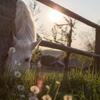
The word laminitis is dreaded by riders around the world. It occurs much more frequently than you might think - about half of all cases are missed because the condition is not obvious to detect. However, it is a crippling condition for your horse and can eventually be fatal. It is estimated that laminitis occurs on average once every ten years of a...
Read More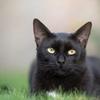
When did you last worm your cat? Let’s face it. Giving worming tablets to cats can be stressful and before you know it those doses start to become less and less regular. Your cat looks healthy and it doesn’t seem like a problem… But did you know that 1 in 4 cats in the UK were found to have intestinal worms? Many cats don’t...
Read More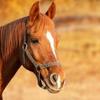
Could your horse have Equine Cushing’s disease? Equine Cushing's disease, also known as PPID, is thought to affect 20% of horses over the age of 15, and is the 5th most common disease syndrome recognised in horses and ponies in the UK*. It is a hormonal disease caused by changes in the pituitary gland, which is located at the base of the brai...
Read More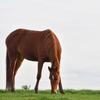
What does a diagnosis of Equine Cushing’s disease mean for your horse? Finding out that your horse has or may have a disease is always a worrying time. Rest assured though that a diagnosis of Equine Cushing’s disease does not mean your horse’s quality of life is going to suffer. Equine Cushing’s disease is a common diagnosis...
Read More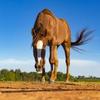
Why does your horse need a blood test 4-6 weeks after starting medication to treat Equine Cushing’s disease? Horses with untreated or uncontrolled Equine Cushing’s disease are at a high risk of developing signs associated with this disease such as laminitis, repeated infections, muscle wastage, lethargy, poor coat quality, and increased...
Read More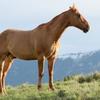
Read on to find out why it's important to book regular 6-monthly veterinary examinations for your Cushing's horse: Once your horse is stable on treatment and their Equine Cushing’s disease is under control, it is recommended that they are re-examined by their veterinary surgeon every 6 months. This is to ensure that any signs that the disease...
Read More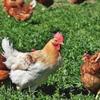
There are many types of internal and external parasites which may affect your laying hens each type can cause different symptoms. Parasites have evolved with birds over millions of years and small numbers of parasites will usually complete their lifecycle in the host without necessarily causing any obvious harm. The common poultry worms are Roundwo...
Read More
Making sure our pets have the correct nutrition throughout their lives is extremely important, especially as they get older. A properly balanced diet tailored to their needs will help to ensure that they continue to thrive as they progress through their twilight years. As our dogs age they tend to gain fat but lose muscle and overall are prone to o...
Read More